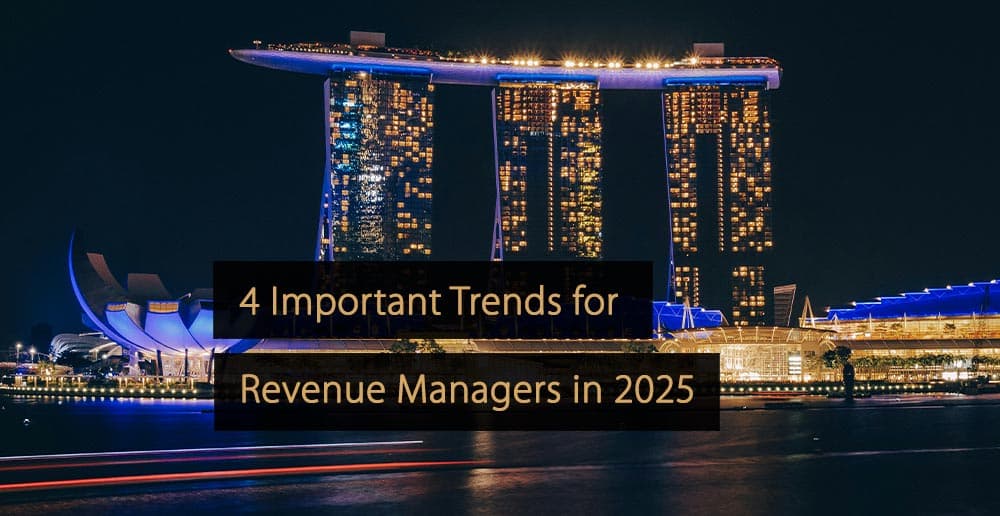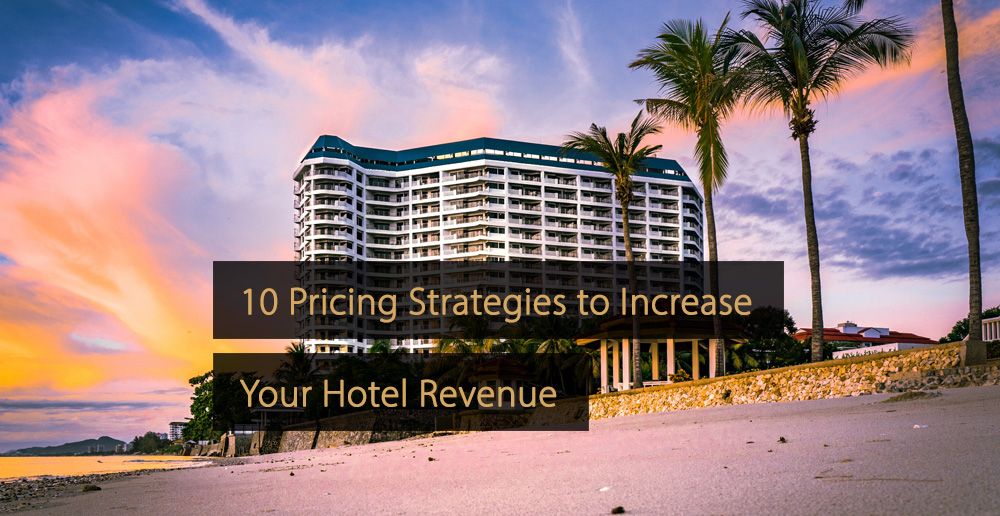Never before has a single event affected the global economy to the extent that the ongoing COVID-19 pandemic has. Revenue managers, owners, and operators have been thrown into disarray within the hotel industry, and all are facing a less predictable future. In this article, you will learn more about revenue management strategies’ role in the post-COVID economy and some of the key trends resulting from the pandemic.
Revenue Management and Adapting to Changing Times
Due to uncertain demand patterns and negligible historical data, revenue management faces a unique set of challenges in the COVID-19 era. Yet, while revenue management has changed forever, it is important to remember that change is constant and that it is fundamentally an ever-changing methodology that can always be improved.
For those in the hotel industry striving to increase market share, the pandemic has forced a change of approach, and there is now a requirement to think differently and come up with creative solutions to your problems.
7 Revenue Management Trends Due to the Pandemic
As stated, the coronavirus pandemic has introduced significant challenges within the hotel industry, and those in the industry have been forced to adapt quickly. Here is a list of seven main revenue management trends that have emerged in response to the crisis and are likely to influence strategies in the months and years to come.
1. The Role of the Revenue Manager is More Important Than Ever
Hotels operating at lower-than-normal occupancy levels should by no means undermine the revenue manager/team requirement. The pandemic has brought conversations about well-rounded commercial leaders taking charge of the recovery process. This transformation will result in revenue managers moving away from managing systems and data towards taking a more important position in commercial decision-making across departments.
2. Shorter Lead Times, But Longer Lengths of Stay
Impulse travel, revenge travel, digital nomads – these are the buzzwords that have arisen. Such trends have also given rise to many hotel chains witnessing more last-minute bookings, with guests staying longer than usual.
Travelers now book holiday homes and hotel rooms for weeks, even combining work with a vacation. This provides opportunities for hotels to capitalize on but also requires adaptation.
3. Providing Greater Flexibility to Increase Customer Demand
Offering flexibility in cancellations and re-booking options is one of the most effective ways to win back guests post-COVID. During the crisis, confidence in travel hit an all-time low, and there is no denying that uncertainty about new variants means there is the potential for the same to happen in the future.
Adopting a flexible approach will help ensure guests choose your hotel when they eventually feel safe to travel again. Of course, in the longer term, once the demand for travel returns to normal levels (and it will, with a vengeance), hoteliers can return to more restrictive, non-amendable policies.
4. “Love Thy Neighbour” By Focusing on Local Customers
In a post-COVID world, domestic and leisure markets are more critical than ever. During the crisis, international border closures meant hotels in many destinations had to turn their attention to local customers, and this should not be entirely reversed. If borders close again, residents will look for safer, domestic travel destinations.
Reliance on domestic travel should serve as a contingency plan for future demand decline scenarios. With this in mind, you should engage with your local area, use social media effectively, and target offers towards this demographic, with a good example being ‘staycation‘ type package deals, allowing for quick getaways.
5. See the Big Picture By Adopting a Macro View of Hotel Demand
In addition to aspects like competitor rates and behaviors, it is important to analyze the macro view of demand peaks and dips within your location. Flight searches, hotel booking searches, and trends in hotel cluster search analytics are all significant elements that need to be tracked continuously so that you can see the big picture.
You must also keep abreast of any changes to travel restrictions in various countries and stay up-to-date with the estimated timelines for their release via government travel advisory sites and similar sources.
Before the pandemic, revenue management technologies largely relied on algorithms prioritizing historical data points. However, with COVID-19 changing the game, a shift in this approach may also be necessary.
6. Greater Reliance on Technology and Tech Investment
Owing to the plethora of data points that have needed to be analyzed, the use of technology in assisting in strategy development has increased dramatically. The advancements made in the last 12-14 months about hospitality technology solutions have not been seen in the past decade or more.
High-quality revenue management systems will now adjust rates and alter demand forecasts based on market behaviors rather than competitors’ price changes. Technology will help hoteliers forecast accurately, competitively, and analyze with confidence, and help make decisions rather than simply offering suggestions.
7. The Growing Importance of Ancillary Revenue Streams
Leveraging all options to generate additional income will result in a holistic growth phase, rather than pressuring only rooms or food and beverage outlets to compensate for lost time and money. One of the easiest ways of increasing guest spend is by up-selling and cross-selling, where you attempt to encourage upgrades and additional purchases.
This focus on ancillary revenue requires a total revenue management approach, where hotels survey different avenues to generate income, even when occupancy rates are low. Therefore, hotels adjust their revenue management approaches accordingly, devising pricing strategies that optimize their hotel’s total revenue performance.
To get the most from a revenue management plan in the post-pandemic era, robust, adaptive methodologies must be implemented, with an awareness that historical demand patterns cannot predict what lies ahead. The continuous monitoring of pre-departure KPIs provides a framework for implementing this.
More Tips to Grow Your Business
Revfine.com is the leading knowledge platform for the hospitality and travel industry. Professionals use our insights, strategies, and actionable tips to get inspired, optimize revenue, innovate processes, and improve customer experience.Explore expert advice on management, marketing, revenue management, operations, software, and technology in our dedicated Hotel, Hospitality, and Travel & Tourism categories.
This article is written by:
Hi, I am Martijn Barten, founder of Revfine.com. With 20 years of experience in the hospitality industry, I specialize in optimizing revenue by combining revenue management with marketing strategies. I have successfully developed, implemented, and managed revenue management and marketing strategies for individual properties and multi-property portfolios.









Leave A Comment